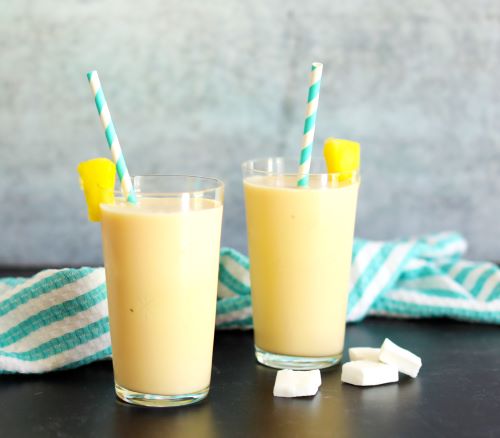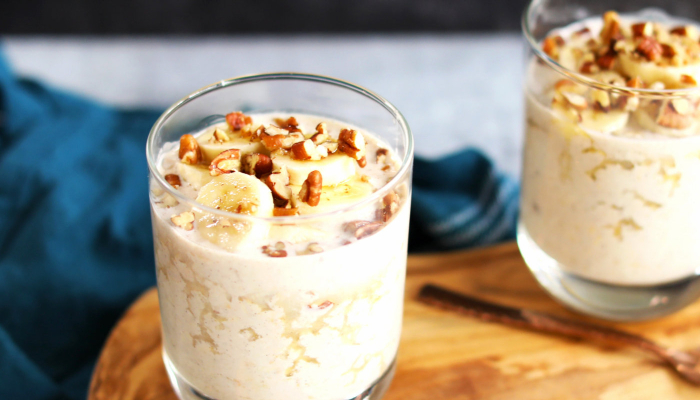Fermented Foods for Better Health
By Guest Blogger Laura Buxenbaum, MPH, RD, LDN
Between fad diets, workout routines, and an ever-growing list of supplements, Americans are looking for the best way to take control of their health. As a Registered Dietitian, I look to food first when it comes to getting good nutrition and keeping my family healthy. I know that in addition to practicing well-studied health habits, such as getting adequate sleep and exercise, and managing stress, nutrient-rich foods play a role in keeping us healthy.
However, not all foods are created equal; some are more effective than others in keeping us healthy. According to Registered Dietitians surveyed in Today’s Dietitian magazine, fermented foods were the number one superfood trend in 2019. But fermented foods are not new, they have been around for centuries. The process was first used for preserving foods but became less popular as refrigeration and pasteurization came about. Today, we look to fermentation for its ability to promote the growth of beneficial bacteria, known as probiotics.
Yogurt, kefir, buttermilk, sourdough bread, kimchi, miso and kombucha are all examples of fermented foods Americans are incorporating into their diet. These foods are created when a carbohydrate in a food is broken down by tiny organisms. Fermentation can change the taste and texture of the food, along with enhancing it in other ways like improving digestibility. For example, yogurt and kefir are thicker and tangier than milk due to fermentation, and most people who are lactose intolerant can digest them better than regular dairy because of the changes made by the beneficial bacteria.
Consuming certain fermented foods can add beneficial bacteria to the digestive tract, which play a role in maintaining a healthy immune system. This year, in particular, as well as this time of year-with cold and flu season upon us- we are all looking for ways to better support our immune system and keep our family healthy. Furthermore, vitamin D plays an important role in a healthy immune system- fortified yogurt and kefir can be a delicious source.
In addition to enhancing immunity, research has shown that fermented foods may reduce heart disease risk and aid in digestion and weight loss. There is also research that links fermented dairy foods, like yogurt and cheese, to reduced risk for Type 2 diabetes, which is estimated to affect 552 million people worldwide by 2030.
Whatever your health goals may be, fermented foods are worth adding to your diet. There are plenty of ways to incorporate fermented foods into your daily routine:
- Eat yogurt with live, active cultures daily.
- Add yogurt or kefir to smoothies, granola, and oatmeal.
- Make dips, sauces, and marinades out of cottage cheese with live, active cultures.
- Add sauerkraut or kimchi to salads, sandwiches, rice bowls and stir-fries.
- Use miso in soups, salad dressings, and marinades.
While more studies are needed to fully realize the impact of fermented foods on our health, a daily dose may play an important role in keeping the whole family healthy this year. Below are two of my family’s favorite recipes that incorporate fermented foods.
 Hawaiian Harvest Smoothie
Hawaiian Harvest Smoothie
Bring the flavor of the tropics to you this winter with this refreshing smoothie. Using kefir and coconut flavored Greek yogurt really packs this smoothie full of high-quality protein. Perfectly balanced with a little tang and just a hint of sweetness.
Ease: Easy
Yield: 2 8-0unce servings
Preparation time: 5 minutes
Total Time: 5 minutes
Recipe Source: thedairyalliance.com
~ 8 ounces plain unsweetened Kefir
~ 1 5.3-ounce container coconut flavored Greek yogurt
~ 1 1⁄2 cups frozen tropical fruit blend
~ 4 ounces coconut water
Combine kefir, yogurt, frozen fruit and coconut water in blender. Blend until smooth. Serve immediately.
 Banana Bread Overnight Oats
Banana Bread Overnight Oats
Using plain kefir for these simple overnight oats boosts the nutrition value and gives them a creamy texture. A touch of all-spice and maple syrup paired with ripe bananas makes this the perfect replacement for high-caloric banana bread. Use walnuts, pecans or any combination of your favorite nuts.
Ease: Easy
Yield: 2 servings
Preparation time: 10 minutes
Total Time: Refrigerate overnight or at least 8 hours
Recipe Source: thedairyalliance.com
~ 1 cup plain Kefir
~ 1/2 cup milk
~ 1 cup old-fashioned rolled oats
~ 1/2 cup chopped pecans, divided
~ 1/4 teaspoon cinnamon
~ 1/4 all-spice
~ 2 tablespoons maple syrup, divided
~ 2 small ripe bananas, sliced
In medium mixing bowl or plastic container with lid, combine kefir, milk and oats; stir until well combined. Add in remaining ingredients reserving about 2 tablespoons of the nuts and 1 tablespoon of the maple syrup for garnishing. Cover and refrigerate overnight or at least 8 hours. When ready to serve, place approximately half the banana slices in the bottom of serving glasses or bowls, divide oat mixture evenly between them. Top with remaining banana slices, pecans and drizzle of maple syrup.
Want to see more blogs like this and get notifications on local events and happenings? Subscribe to Triad Moms on Main’s free weekly newsletters here.

Laura, I just purchased Kefir to use in my coffee, and am excited to try that overnight oats recipe with Kefir. Thank you for these suggestions!
Kefir in your coffee is a great idea! I had not thought of that!